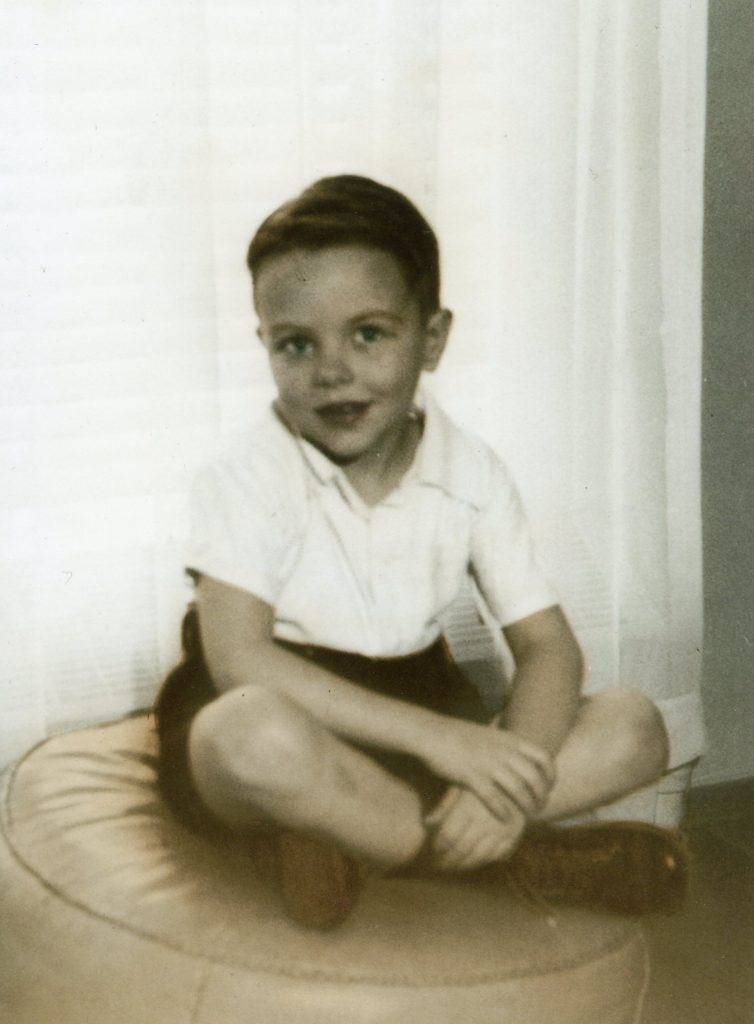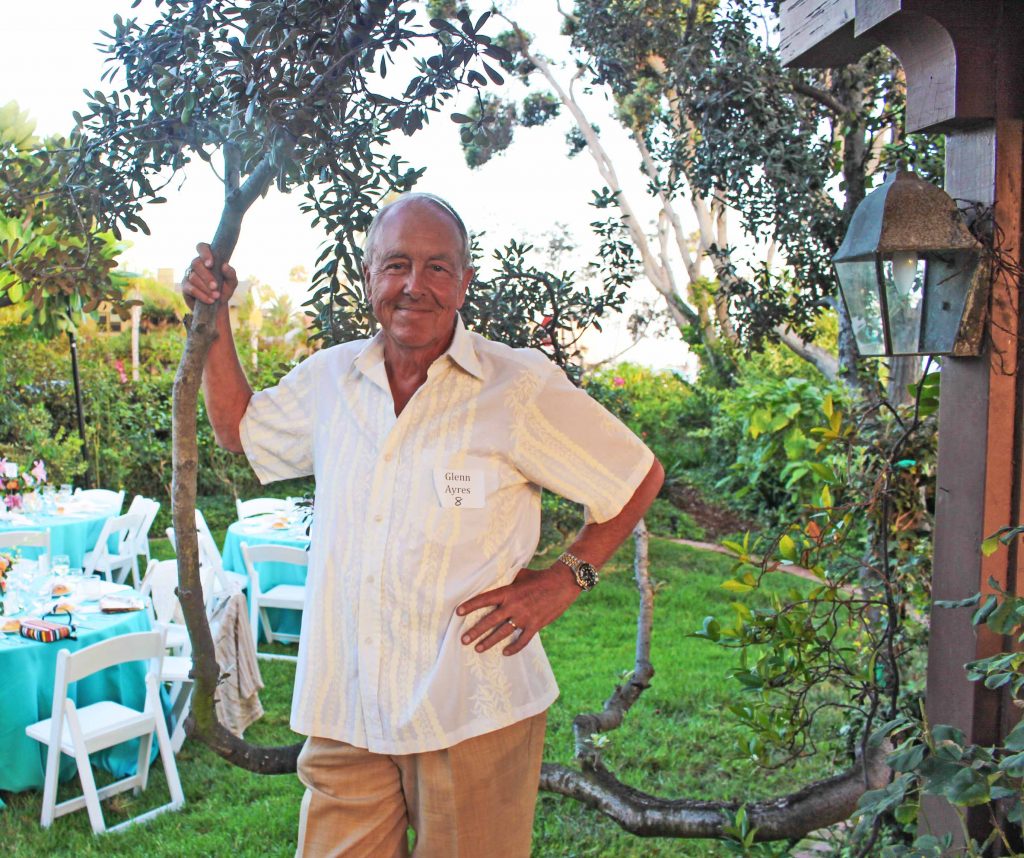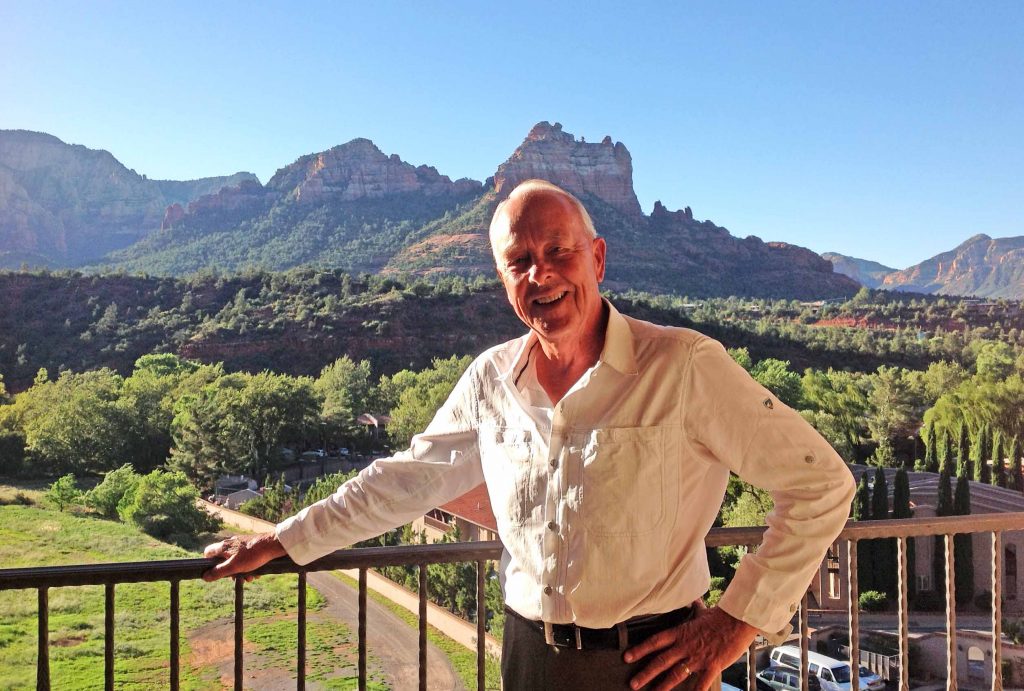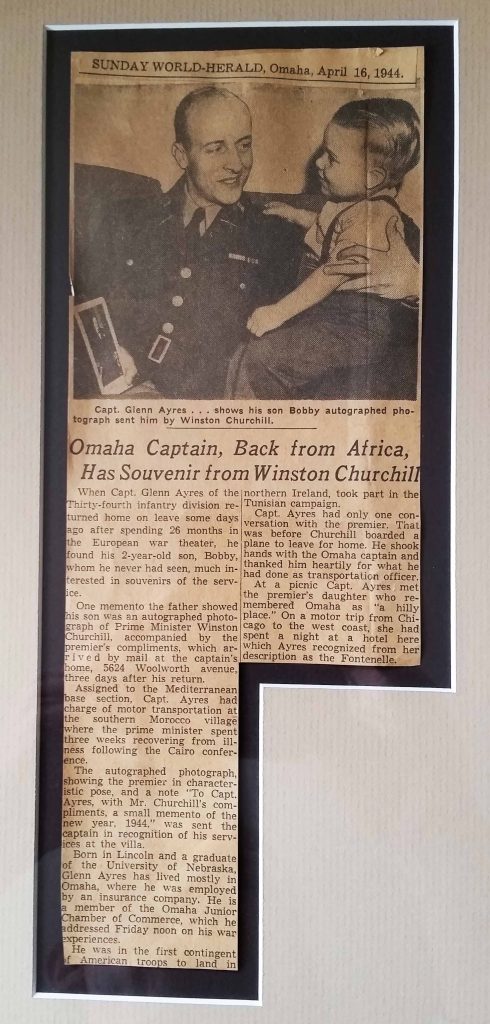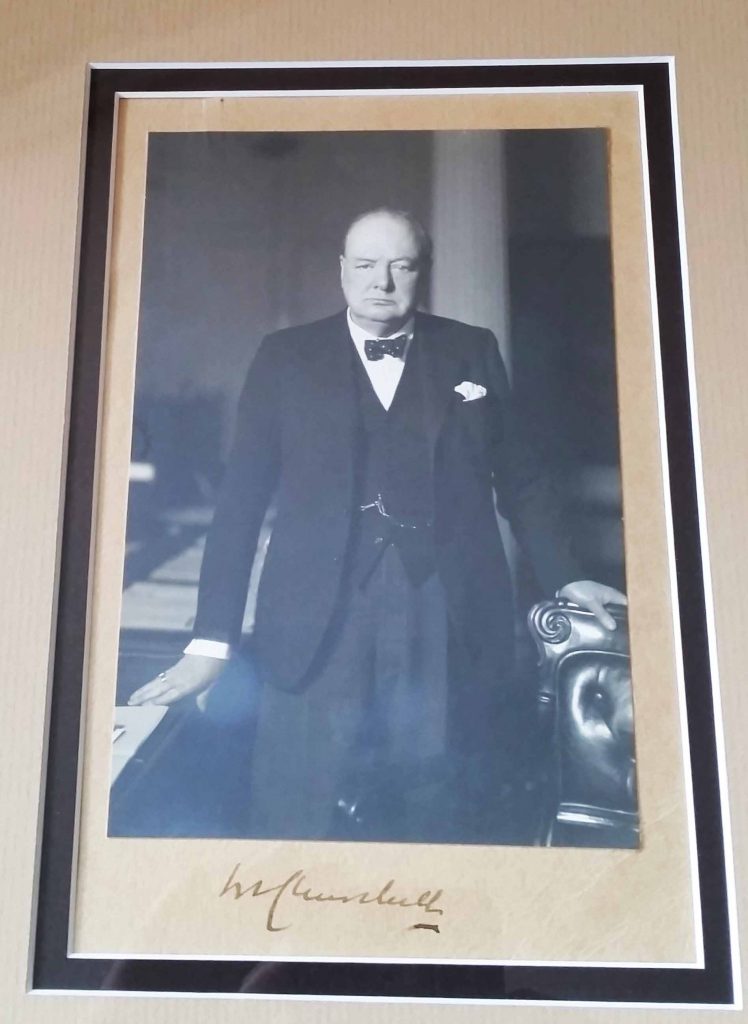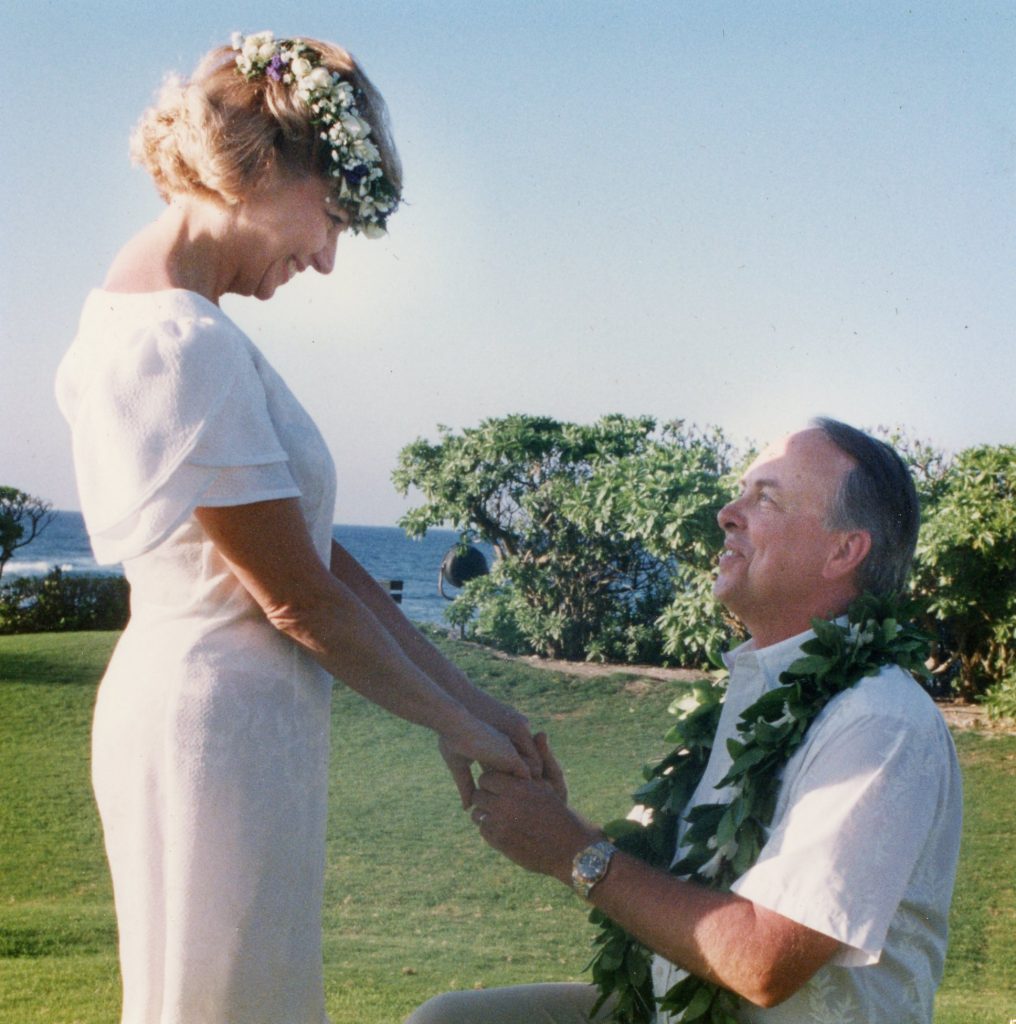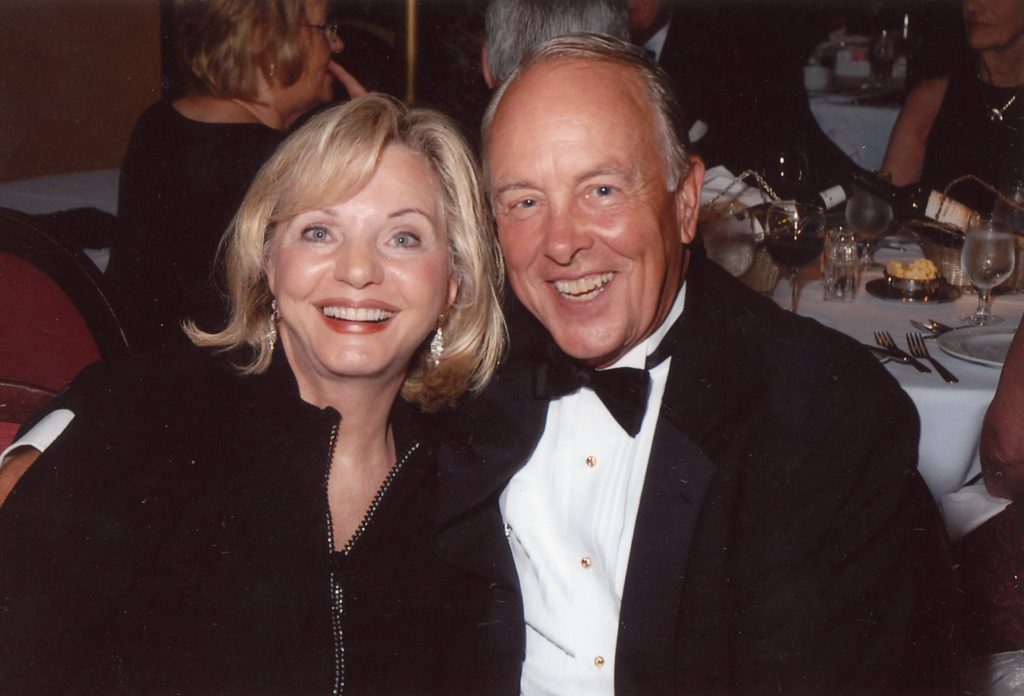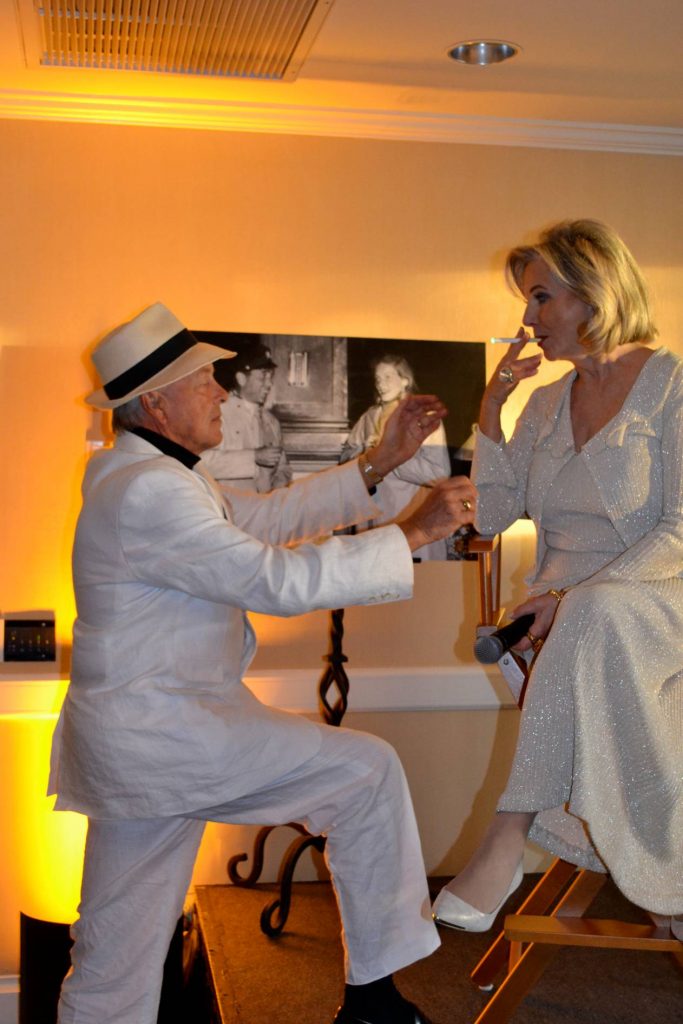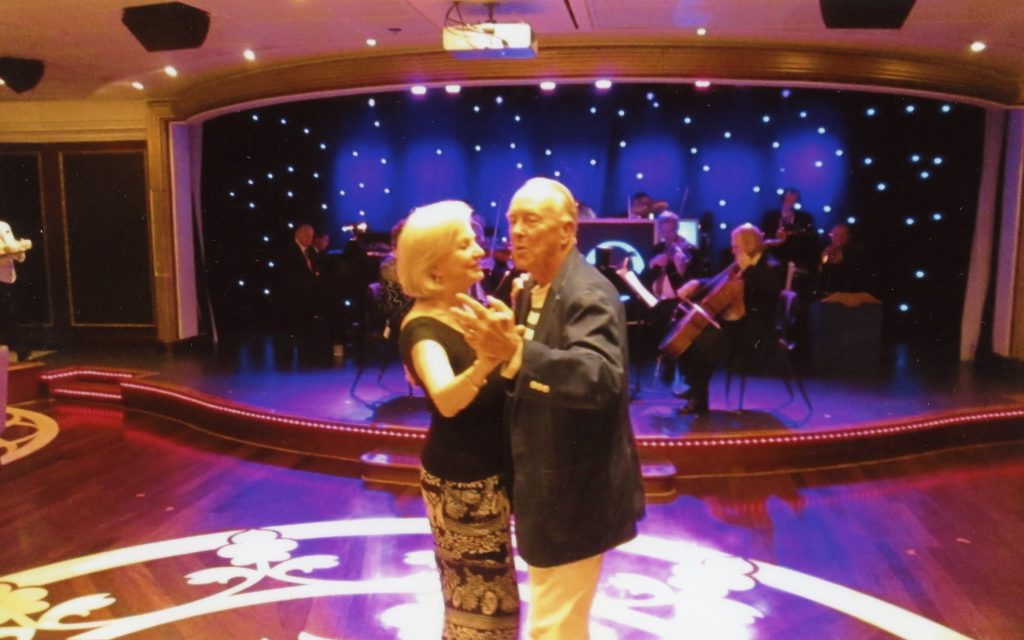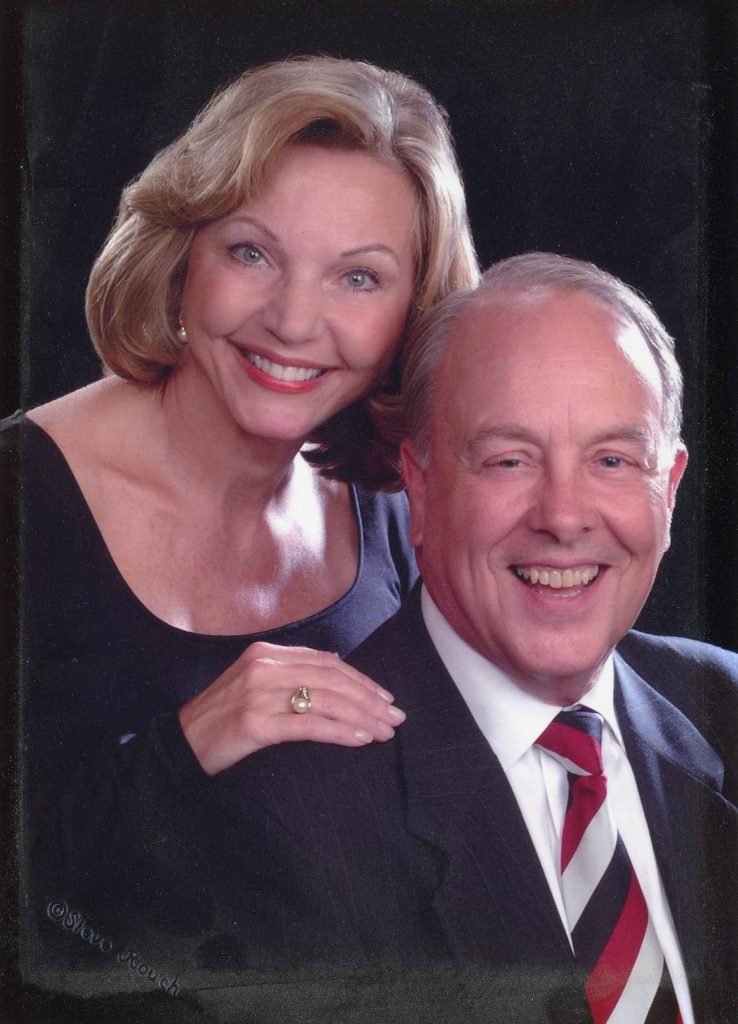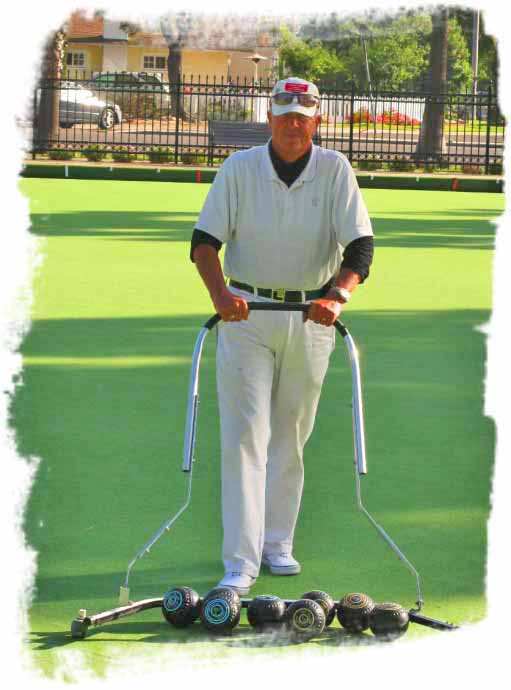
The man on the dance floor seemed to float on air. He moved his partner from side to side as the band played. He was dapper, distinguished, elegant, and immaculately dressed. And when he spoke, his voice resonated with a fullness and warmth.
This was Glenn Ayres, a midwestern boy who grew to be an innovative and internationally known consultant. He spent most of his life as an attorney, but an attorney with a twist. Glenn preferred counseling and mediation to litigation, and this twist allowed him to help guide and influence hundreds of family-owned businesses.
Glenn was born April 28, 1942 in Omaha, Nebraska. Glenn was the oldest of four children born to Glenn John Ayres and Grace Elizabeth Ayres. Glenn was born while his father was fighting the war in North Africa.
“The first time I met my father was when he came home from the service,” recalled Glenn. “I walked into my mother’s bedroom and found a strange man in bed with her. Apparently, I had a fit,” he laughed.
His father returned to the insurance business after the war. Glenn attended school in Minneapolis. The family lived one block from Minnehaha Creek, which meandered through the woods. Even as a small child, he could walk to school, to sports, or explore the woods safely.
The family moved to Minneapolis, where Glenn started school. Eventually his father became an executive at Northwest Paper, in Cloquet, Minnesota. The winters were harsh there, but for a young boy it was heaven. Glenn became a polished cross-country skier and grew to become a superb athlete.
Hailing from an upper middle class family, Glenn never wanted for anything. But his father, although not a strict disciplinarian, had definite ideas about bringing up his children. Making a mistake, such as forgetting to fill the coal heater once a week, or getting a less than stellar report card resulted in no going to movies, no seeing friends, no dating, and no participating in sporting events.
“That was enough for me,” said Glenn. “My father was a good man. And taking away movies alone would have done the trick. I loved movies. I still remember the first one I saw – Sophia Loren in Boy On A Dolphin. My friends and I saw it again and again. We couldn’t believe how beautiful she was.”
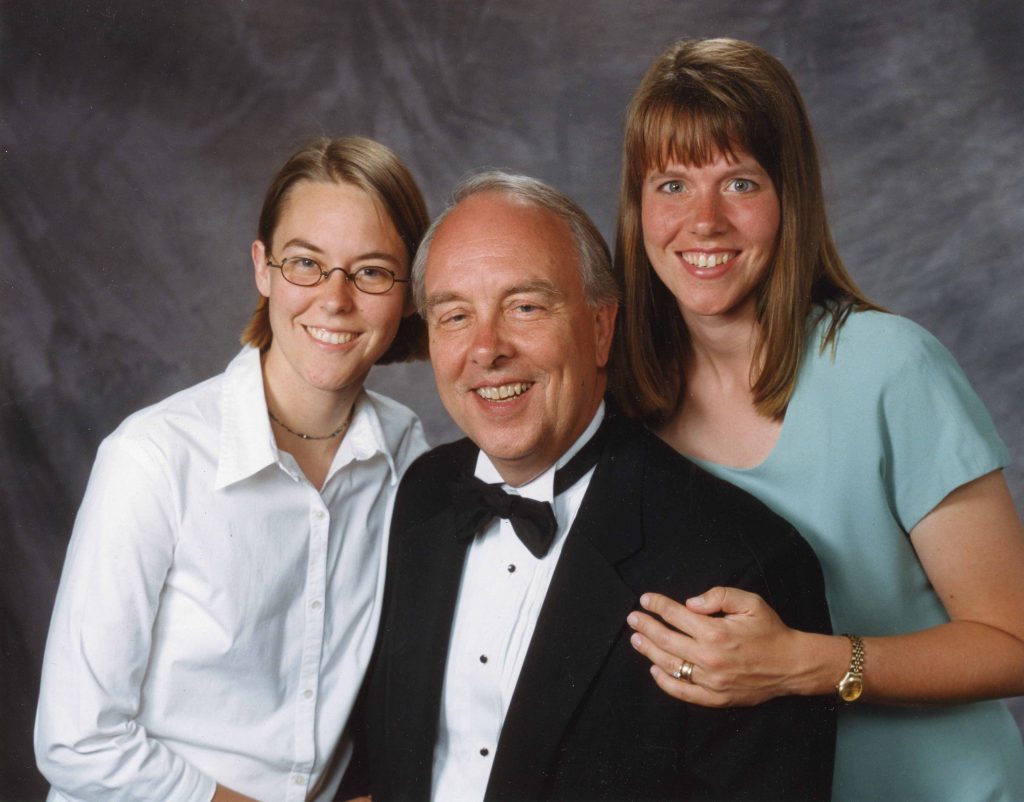
From an early age, Glenn loved sports such as golf, tennis, and skiing as well as dancing. “I loved dancing because it was a great way to meet cute girls,” he said with a laugh.
The family always attended the Presbyterian church together on Sundays, and Glenn’s father insisted young Glenn bring his girlfriends home so he could give his approval.
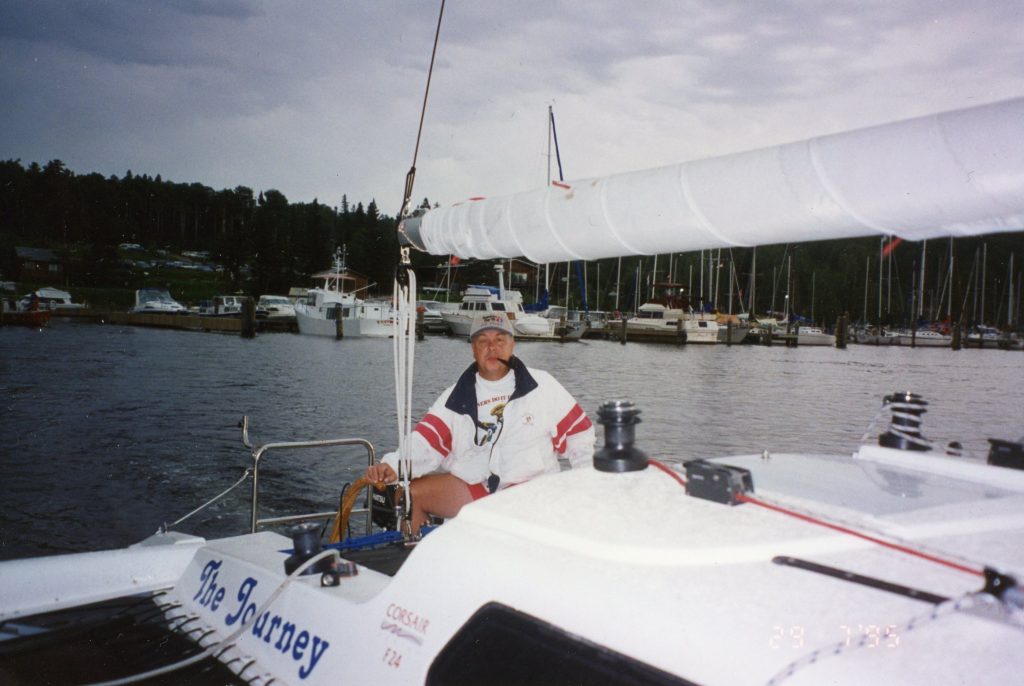
In high school, Glenn dreamed of attending Dartmouth University. He and another applicant were so close in their abilities and backgrounds that the school literally flipped a coin to see who would get the last available scholarship. Glenn lost.
As a result, he ended up attending his father’s alma mater – the University of Nebraska, where he pledged the Delta Upsilon fraternity and continued excelling in sports. Despite his athletic successes, Glenn was attracted to the theater. As a master-of-arms at the university, he produced numerous dramatic plays, including Bye Bye Birdie twice. He acted in Guys and Dolls, Fiorello, and Music Man. He was tempted to pursue a career in the theater, but instead chose law.
Glenn admitted that he had a bit too much fun in those early years in the fraternity. His father felt his freshman-year grades were insufficient, yanked him out of school for a semester, and put him to work at the paper mill doing the worst possible jobs imaginable – scraping ice off the machinery in 10-degree weather, cleaning boxcars in the heat of summer, hauling brick and straw.
When Glenn returned to college the next year, he had a new attitude and a better report card. “Years later my father and I would sit and have a drink, and laugh about it,” recalled Glenn. “He knew what was best, and now, looking back, I think he was right.”
Once, the manager of the local AM radio station who had heard Glenn give the oratory at church hired him to work at the station. His job was to flip the vinyl records and occasionally tell a story. It was there that he learned to use his voice to the fullest. That smooth, soothing voice, and his ability to listen, were major factors in his success in counseling family businesses.
Other small jobs filled Glenn’s summers and holidays away from school. He worked for the Forestry Service and tended bar at the local golf club. The former built his physique; the latter built his people skills.
While attending the university, Glenn joined the Army ROTC. He had hoped to become a pilot, but poor eyesight limited his options. He spent three summers in a row in Fort Riley, Kansas as a cadet and graduated as a second lieutenant.
Glenn wanted to do something important for his country while helping others, so, on the advice of a close friend, he trained to become a Judge Advocate General, or JAG.
After graduating from the university in 1965, Glenn moved on to the University of Minnesota Law School, graduating in 1968 and passing the Minnesota bar on his first attempt. His first assignment as a JAG officer was at Fort Lewis, Washington.
While serving as a JAG officer in Heidelberg, Germany, during the 1972 Summer Olympics in Munich, Glenn and his team were tasked with secreting American swimmer and Gold Medal winner Mark Spitz out of Southern Germany to a more secure area after the Munich massacre.
In 1990 Glenn, divorced from his first wife, met Carolyn while participating in an event sponsored by a private human potential training company. Participants in the event were asked to dress up in costumes. To help them better appreciate human values, Glenn was asked to dress as a woman, which is how he met Carolyn – something they joked about for years to come.
Glenn and Carolyn fell madly in love and married in 1994, settling in St. Paul, Minnesota. They moved to Coronado full time in 2006.
For more than 25 years, Glenn Ayres consulted with families, executive teams and businesses on matters of family business succession, change management and governance. He was known far and wide as one of the best, natural mediators in the business. Glenn’s philosophy was always, “Lawyer means counselor.” He could have made much more money in litigation, but preferred mediation and counseling. That was a huge part of who Glenn was. “Reconcile, rather than attack,” he often said.
He was proud to have been able to train a number of young attorneys in the many facets and intricacies of his work. By doing this, he created a legacy of specialists who were prepared to continue providing quality service to his family business clientele.
In 2002, Glenn obtained a doctorate in organizational development from the University of St. Thomas in Minneapolis. He also became a founding member of the university’s Center for Family Enterprise and served for several years as a professional-in-residence and on the center’s advisory board. He also taught ethical decision making in business and family business as an adjunct faculty member at San Diego State University.
Glenn was a founder of the Minnesota-based Family Business Alliance and a board member and past president of the International Family Firm Institute. He was a frequent speaker and lecturer on family business, governance, the wisdom of multi-disciplinary teams, and dealing with grief on a professional level.
Glenn and Carolyn traveled all over the world and loved sailing the waters of the Mediterranean, Lake Superior, Florida, Hawaii, and the Pacific Northwest. They owned a Corsair trimaran with folding mast that allowed them to trailer it and explore unlikely and exotic bodies of water.
Glenn was an active golfer and tennis player, and in Coronado took up the sport of lawn bowling. He would wake at the crack of dawn and clean the lawn bowling courts or play in a hotly contested doubles match.
There is a rock along Ocean Boulevard that Glenn could frequently be seen sitting on. He called it Ayres Rock. “It’s a great place for quiet, to watch the ocean and prepare for the day,” he often said. “It’s my special place.”
“I love watching Carolyn laugh, I love making a difference, and I love going to my rock,” he said. Then he quickly added, “And there is nothing like a 240-yard drive down the middle, a 35-foot putt, and a quiet afternoon with a book and no guilt.”
Glenn is survived by his wife Carolyn of Coronado and two daughters, Liz Runyon (John) and Jodi Ayres (Heather), both of Minnesota. Two grandchildren, Jake and Abby, also survive him.
Glenn will be interred privately at Miramar National Cemetery on April 5. A public service will be held at the Coronado Community Church on Saturday, April 6, at 11 a.m. The church is located in Village Hall on 6th Street and H Avenue in Coronado.
In lieu of flowers, the family requests donations be made to any of the following:
Coronado Community Church [Choir Angel Fund] (P.O. Box 181680, Coronado, CA 92118); Coronado Island Film Festival [Dale St. Denis Female Filmmaker Award] (1504 Parkview Place, Coronado, CA 92118); or Elizabeth Hospice, 500 La Terraza Boulevard, Suite #130, Escondido, CA 92025).




